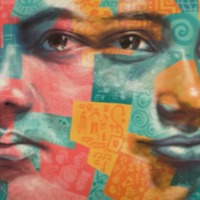
I am from Nyala, in Darfur. I never thought about South Sudan. I don’t remember it. I was very small when I was taken to the North, but old enough to know my Dinka name. I don’t know my hometown in the South, but I know I had four sisters and three brothers, and that I was the youngest. I have good memories of them – playing with them, being together.
I lived with a man named Hamad Hassan in Nyala. He was a cattle owner. Hamad had six wives, twelve children, and six slaves. He lived in the village, but I was sent into the bush to look after his cattle.
He treated me badly. If I lost a cow, I was beaten and called “son of a jengai [a racial epithet],” and then I had to go back out to find it and bring it back. This happened several times, and when it did, I was not given good food to eat, only sorghum shells.
His family treated me badly also. If I looked lonely, and they asked me what I was doing and I answered, “Thinking about my parents,” they would say, “Why? We’re you’re family now.” Hamad made me call him father, and beat me if I didn’t. He called me his son.
I was never allowed to meet or talk with the other slaves. They were kept in separate houses.
I was renamed “Saddam,” and I prayed like a Muslim and fasted during Ramadan. It was hard to fast and work at the same time, but I accepted these things, and wanted to be a Muslim. I wanted them to accept me.
I was so excited when the slave retriever came. The first day he came, Hamad refused to let him take me. He came again the next day and spoke in private with Hamad, and then took me away. I stayed in a different place with him for a few days, and then he brought me to a place with many more Dinka people, and told us, “We are going to South Sudan.”
I will look for my parents now.
Narrative provided by Christian Solidarity International









